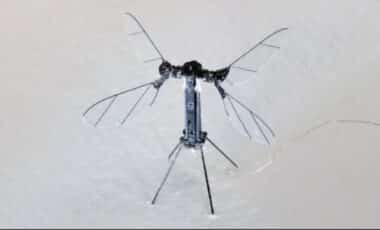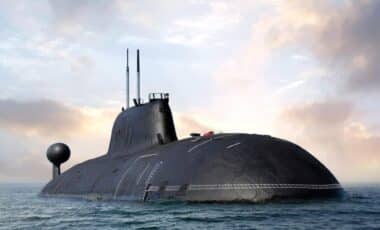Reviewed and Highly Recommended by Don DeNevi
A Note About the Author: George H. Wittman served in the US Army during and after the Korean War. In the decades that followed, he became intimately involved in national security, global intelligence matters, and international business. Along the way, George managed businesses, founded public services organizations, and wrote prolifically, i.e., his first novel, “A Matter of Intelligence” published by Macmillan Company in 1975, and the non-fiction, “The Role of American Intelligence Organizations” in addition to weekly articles on a vast array of international topics and events that he wrote for thirteen years for “The American Spectator” and later for “The Washington Times” and “AND Magazine”, among others. On November 16, 2020 George passed away at the age of 91 in Gold Canyon, Arizona.
The Review:
Even after more than half a century, it’s difficult to fathom how any historical wartime fiction can equal, let alone surpass, the descriptions of combatants, battles, actual fighting and killing, terror, fear, intensity, intrigue and duplicity, quality of officer service, etc., in “Dispatches”, a national bestseller written by Michael Herr in the mid-1960s and copyrighted in 1968. On his “The Today Show”, Tom Brokaw quoted the author’s final seven words in his 260-page book, “. . .Vietnam, Vietnam, Vietnam, we’ve all been there.” And, ever since, illimitable writers have unabashedly acknowledged Herr as their exemplar by attempting to equal, rival, if not excel his extraordinary narrative style, although no one has succeeded as vividly.
Then, in mid-July of this year, along came George Wittman with his nonpareil “There Was a Time” (Casemate War/Combat Fiction, softcover, 301 pp, $24,95 – see www.casematepublishers.com), proving indisputably that his novel was just as fervid, riveting, emotionally exhausting, intrinsically intriguing, in leaving readers as old fashioned heart-sore. In a foretelling Author’s Note on page v, George laid out his justification and plan for creating and ending the World War II novel in the manner he did. Like Herr’s concluding chapter in “Dispatches”, he hoped his, too, would indelibly melt into the reader’s memory, and, hence, into the war literature of the 20th Century. George wrote,
“While my story is told in the form of a novel, it nonetheless is based on actual events and exploits of various OSS, Office of Strategic Services, officers and enlisted men. I have chosen to fictionalize these individuals because so many of them sought in later years to avoid public awareness of their roles in northern Vietnam and their working relationship with Ho Chi Minh and his staff in the field. Similarly, for literary purposes, I have combined the activities of several of the teams and their operational leaders. I have tried to remain true to the action and the situation of the history of the operation. These missions and the events which drove them occurred some 20 years before the Gulf of Tonkin Resolution that marked the justification for the escalation of American involvement in Vietnam.
There was a time.
George H. Wittman”
Cogently summing up George’s “indelible” fictitious storyline, during the extremely dangerous final days of the World War II in Vietnam, America’s super-secret OSS team parachutes several special operatives into Tonkin, northern Viet Nam, to meet with the country’s Communist leader, Ho Chi Minh, and his fighting team, the Viet Minh, also at war with the occupying Japanese forces. Led by Major John Guthrie and his second-in-command, Captain Edouard Parnell, both experienced officers from their earlier assignments in occupied France and Belgium, the American team’s goal is to collaborate with the notorious Ho Chi Minh against the common enemy. But other groups are intriguing to grasp control of all Indochina. Guthrie, Parnell, and their tiny group must adapt to an entirely different context in Vietnamese polity to encourage the Communists to whole heartily lead the fight against the Japanese. Confusing the scenario are French designs to regain their traditional control of the “colony”, Indochina.
With such an original approach to this past true event, author Wittman challenges the later-accepted dogma of both those supporting and those opposing the role on the United States in the Viet Nam conflict. Nearly corresponding in many ways to “Dispatches”, George’s spellbinding fiction notes how what is perceived later is often inadequate to understand what actually went on. Similarly, in nearby Thailand, formerly Siam, OSS leader, Jim Thompson, went through his own anguishing end of the war in and around Bangkok. Wittman and Thompson, two close cohorts separated by geography realized how contemporary relevance is simply a mirror of what is usually the case in international affairs. Thus, today’s enemies can and probably will be tomorrow’s friends and, more importantly, the reverse is always possible.
Wouldn’t both renowned books, “There Was a Time”, a hint better of the two, and “Dispatches”, if it can be found on Amazon or Ebay, leave their recipient rejoicing, if presented as a combined Christmas and New Year gift? Especially if suggested to read “Time” first since it launched the events that shook the Indochina world and its neighbors when the occupying Japanese troops politely laid their guns down on the airfields of the liberated countries.








